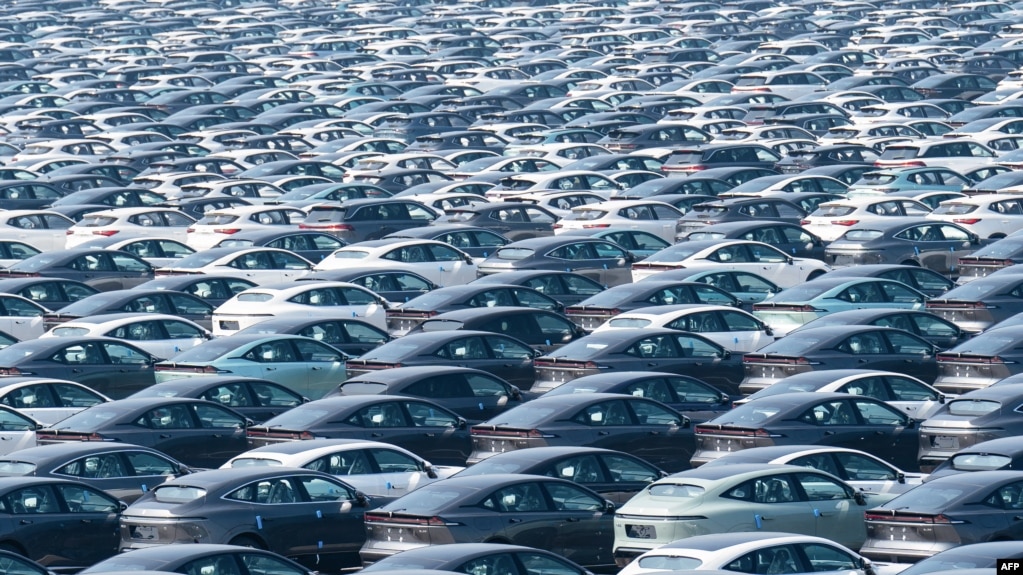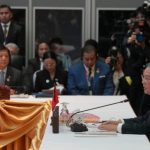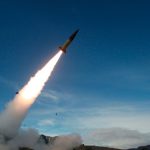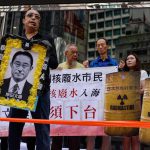
FILE – New electric vehicles sit in China’s southwestern Chongqing, Oct. 15, 2023. Chinese state media outlets are urging the EU to adopt a “pragmatic approach” to cooperating with China after the bloc decided to increase tariffs on EVs from China by as much as 45.3%.
Taipei, Taiwan —
China is ramping up efforts to smooth ties with the European Union in the wake of the U.S. elections, with a top Chinese official and state media maintaining that improved ties are in the interest of both Brussels and Beijing.
As countries worldwide try to anticipate what President-elect Donald Trump\’s victory might mean for U.S. foreign policy, analysts say the push by Beijing appears aimed at driving a wedge between the EU and the United States.
“Beijing is trying to exploit current uncertainty regarding the future of transatlantic relations to ensure that the EU distances itself from Washington\’s increasingly confrontational approach toward China, but it will be difficult [for Beijing] to accomplish [the task,]” said Alicja Bachulska, an expert on Chinese foreign policy at the European Council on Foreign Relations.
“Europe is becoming increasingly aware of the negative impact of China\’s foreign and industrial policy on the single market and the security of NATO\’s Eastern flank,” she told VOA in a written response.
On November 9, the deputy head of European affairs at the Chinese Foreign Ministry, Cao Lei, said that because Trump\’s victory could be “the turning point of our times,” the EU and China should repair divisions and improve bilateral relations.
“No one wants to return to the law of the jungle, no one wants to go back to the era of confrontation and the Cold War, and no one wants to return to unilateral hegemony. This is the backdrop that China-EU relations are facing,” he said at the launch of the China Think-Tank Network on Europe at Beijing Foreign Studies University.
Tension rises
Some Chinese analysts say the two should restore trust because Europe is more important for China than the United States.
“With Trump returning to the White House, an enhanced China-Europe cooperation will be beneficial for both sides to address [challenges] at the onset of a new era of uncertainties in the world,” Feng Zhongping, the head of European studies at the Chinese Academy of Social Sciences, a Chinese government-affiliated think tank, said at the same event.
Meanwhile, Chinese state media outlets are urging the EU to adopt a “pragmatic approach” to cooperating with China after the bloc decided to increase tariffs on electric vehicles imported from China to as much as 45.3% in October.
“A hardline economic and trade policy stance toward China will only further restrict the EU\’s maneuvering space in economic cooperation, which will, in turn, exacerbate the EU\’s economic difficulties,” China\’s state-run tabloid Global Times wrote in an opinion piece on Wednesday.
Those remarks come amid rising trade tension between China and the EU. In response to the bloc\’s tariffs against Chinese EVs, China announced Monday that it will start imposing temporary anti-dumping measures against imported European brandies on November 15.
While the EU and China both claim to have made some progress in the ongoing negotiation to address the EV tariffs last week, Bloomberg reported on Monday that the bloc sees little prospect of a quick deal.
Experts say while China hopes to stabilize trade relations with the EU as it prepares for potential tariffs that Trump has vowed to impose on Chinese products once he takes office, Brussels is unlikely to halt its efforts to rebalance trade relations with China.
“What Beijing could potentially expect is to see its divide-and-conquer approach slow down the EU\’s efforts to implement relevant economic defensive instruments,” Zsuzsa Anna Ferenczy, an expert on EU-China relations at National Dong Hwa University in Taiwan, told VOA by phone.
Some European leaders also are becoming more critical of China\’s close partnership with Russia. Kaja Kallas, the incoming foreign policy chief for the EU, said Beijing should pay “a higher price” for supporting Russia in the war against Ukraine.
“Without China\’s support to Russia, Russia would not be able to continue its war with the same force. China needs to also feel a higher cost,” Kallas said during a hearing at the European Parliament on Tuesday.
Bachulska said Kallas\’ comments reflect the growing realization across Europe that “China is a strategic enabler of Russia,” but the sense of urgency is not evenly distributed across EU member states.
“Some actors are convinced that Beijing should not be further \’antagonized\’ and that China\’s geographic distance from Europe makes it less of a threat,” she told VOA, adding that Beijing will try to exploit this narrative.
Other experts add that with the security threat posed by Russia, European countries will likely put more effort into maintaining their close alliance with the U.S. rather than trying to adjust the bloc\’s foreign policy approach toward China.
“The common denominator is that in the European Commission, security issues now seem to take the driving seat so it\’s hard to imagine Europe not putting a lot of effort into maintaining the transatlantic alliance, and it will be surprising if the EU takes a united front to prioritize relations with China,” Sari Arho Havren, an associate fellow at the Royal United Services Institute, told VOA by phone.
Common ground possible, some say
While European analysts say the effect of China\’s attempt to weaken the trans-Atlantic relationship may be limited, some Chinese experts say if Trump imposes high tariffs against products from China and European countries, Beijing and Brussels may find more common ground.
“I think Trump would impose tariffs against both China and the EU, so this may provide both sides an opportunity to reconcile the bilateral relationship,” Zhou Bo, a senior fellow at the Center for International Security and Strategy at Tsinghua University in China, told VOA by phone.
By:VOA











